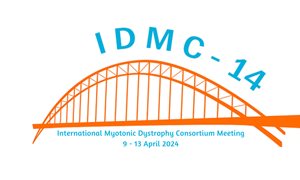
The kidneys develop during pregnancy, and their construction is completed before the end of the pregnancy. In children born prematurely, kidney development is not mature. Michiel Schreuder, theme Renal disorders, together with Maastricht UMC+, is now starting a study into the kidneys of these children. For this, the researchers received a grant from the Kidney Foundation.
The kidneys are the body's filters. They separate waste products from the blood and these then end up in the urine. They both consist of a million tiny filters. People have these filters from birth: no more are added. Children who are born prematurely (premature children) develop fewer kidney filters. This also applies to children who get an infection during pregnancy or children who are deprived of oxygen around birth. To compensate, these filters then have to work harder, which can cause high blood pressure, among other things. The filters also wear out more quickly, which significantly increases the risk of spontaneous kidney failure. As a result, dialysis or kidney transplantation may eventually be necessary.
Research with stem cells
To prevent and even avoid these problems later in life, it is necessary to stimulate the kidney development before it is completed in the premature child. Therefore, the Radboudumc, MUMC+ and UMC Utrecht are starting a study into treatment with mesenchymal stem cells. These cells are precursor cells from the bone marrow. They can grow into other cell types. More importantly, the cells are very capable of positively modifying harmful inflammatory responses. The researchers expect that treatment with stem cells can help the premature kidneys to continue the construction of kidney filters as well as possible.
Radboudumc Amalia Children's Hospital is at the forefront of care for and research into rare and serious kidney diseases in children. Michiel Schreuder is Professor of Pediatric Nephrology at Radboudumc Amalia Children's Hospital: "The number of kidney filters at birth is all-important for kidney function for the rest of life. Therefore, I am happy that with the help of the Kidney Foundation we can investigate how to stimulate the development of these kidney filters, so that we can limit or prevent the harmful long-term effects."
Collaboration within the Academic Alliance
The research, the PERSONAL project, takes place within the Academic Alliance, the collaboration between Radboudumc and MUMC+. In the pediatrics laboratory of Maastricht UMC+, researchers have been delving into the effects of preterm birth and inflammatory responses on, for example, the lungs, brain and intestines for years. Tim Wolfs is the head of the laboratory: "We are incredibly motivated to improve the treatment of preterm infants and develop interventions to prevent health problems later in life."
Different organs in focus
Experiments in various laboratory models have produced promising research results around stem cell therapy. To further investigate these interesting findings, MUMC+ has built an intensive care unit where, through animal studies, the development of as many organs as possible after premature birth and inflammatory stress are mapped. It also offers opportunities to test therapies. Wolfs: "With this research we can also add the kidneys. We follow the animals, in this case sheep, for up to twelve months, so that we can also map out what developments and treatments in the preterm phase could mean for the longer term."
In recent years, the Maastricht researchers have gained a great deal of knowledge in the area of organ damage surrounding preterm birth and stem cell therapy. For example, Wolfs is leading a large study of lung damage in preterm infants. Maastricht UMC+ and the Radboudumc both participate in the PREMSTEM project: research into stem cell therapy for the recovery of brain damage after premature birth. Wolfs: "Stem cell therapy is very promising. Research has shown that it is safe and it is already used for various diagnoses outside of pediatrics. Treatment of preterm infants with stem cells is coming ever closer. This research contributes to that again."
-
Want to know more about these subjects? Click on the buttons below for more news.
More information
Pauline Dekhuijzen

wetenschaps- en persvoorlichter
Related news items

14th International Myotonic Dystrophy Consortium Meeting Brings Hope for Treatment International leaders share new insights in Nijmegen; Family Day
4 April 2024New developments, treatments, and research will be discussed at the 14th International Myotonic Dystrophy Consortium Meeting (IDMC-14) at De Vereeniging in Nijmegen. This 5-day meeting (9-13 April) concludes on April 13th with a Family Day for patients with myotonic dystrophy and their loved ones.
read more
Grants for research on magnesium deficiency and malaria Vidis for Felix Hol and Jeroen de Baaij
1 July 2022 Radboudumc researchers Jeroen de Baaij and Felix Hol both receive an NWO Vidi grant for their research, respectively on magnesium deficiency in type 2 diabetes and on malaria. read more
Human pluripotent stem cell-derived kidney organoids for personalized congenital and idiopathic nephrotic syndrome modeling
11 May 2022 Bart Smeets, Jitske Jansen and collegues, theme Renal disorders published this article in the Human Development. read more


